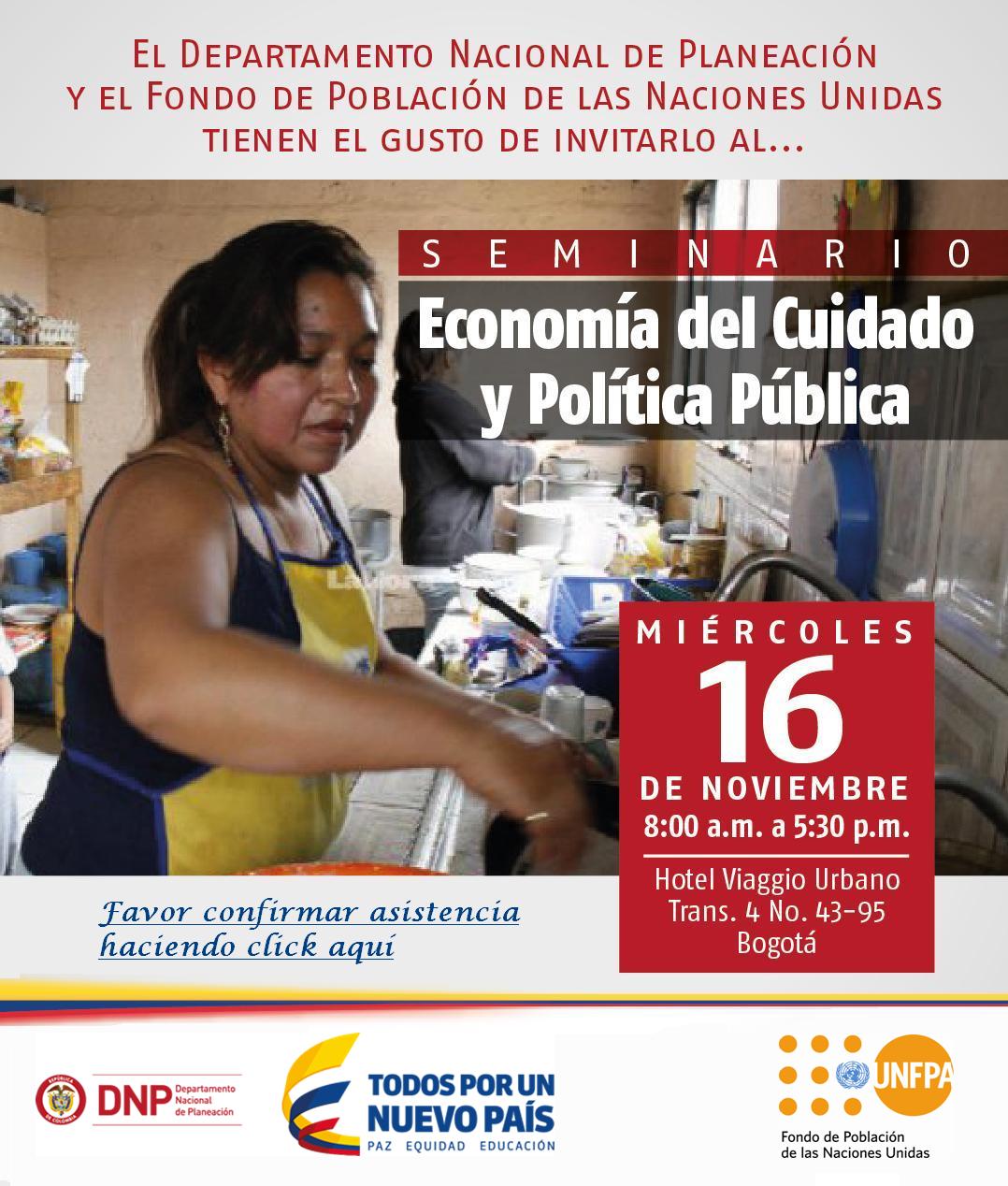
COLOMBIA
Highlighting unpaid care work and inequality

The Colombia team was one of the early research groups to use the time use survey fielded in Colombia during 2012 and 2013. Results have been published and presented in academic, government, and NGO forums, highlighting the value of unpaid care work. The Colombia team has also had a particular emphasis on exploring patterns by education level, in order to understand how inequality impacts the care economy and policy interventions around care, gender equality, aging, and growth.
Scholars and practitioners from around the world met online to share results on unpaid care work using the National Time Transfer Accounts framework developed by Counting Women’s Work.
Counting Women's Work and the Population Reference Bureau collaborated on a webinar featuring CWW country teams discussing research and policy around the world and a senior national statistician giving the perspective of someone directly involved in public policy and public statistics.
CWW researchers published Time Use and Transfers in the Americas: Producing, Consuming, and Sharing Time Across Generations and Genders, featuring chapters on National Time Transfer Accounts methodology, results from Costa Rica, Uruguay, Colombia, and the United States, as well as cross-country comparative work.
CWW infographics summarize the market-based and unpaid care work economy in a country. This post shows the infographic for Colombia.
CWW Working Paper WP5 is by B. Piedad Urdinola and Jorge A. Tovar, and details the CWW research for Colombia. It is entitled Time Use and Gender in Colombia.
Team members of Counting Women’s Work Colombia discussed their work on UN Radio, an online radio for the Universidad Nacional de Colombia.
Counting Women's Work collaborated with a task force on Gender Economic Equity to make sure that discussions of women’s economic empowerment included evidence from both the market and household economies.
Piedad Urdinola discussed results from the Colombia CWW research at a seminar entitled "The economics of caring and public policy," providing evidence of the large part that caring plays in the lives of ordinary people and how, in the Colombian context, it is linked with gender differences in the educational system and labour market segregation.
Counting Women's Work’s Colombia team help a symposium with results from the Colombian research. They were joined by other CWW personnel and other regional experts. The seminar took place on June 1, 2016, at Auditorio Juan Herkrath Muller-Facultad de Ciencias, Universidad Nacional de Colombia-Bogotá.
"Knowledge Management for Public Policy Based on Evidence: Giving Visibility to the Unremunerated Work of Women", hosted by the Centro Centroamericano de Población, the Instituto Nacional de las Mujeres and the Programa Estado de la Nación, San José, Costa Rica. 10 March 2016. Presentations by Pamela Jiménez-Fontana and Piedad Urdinola.










